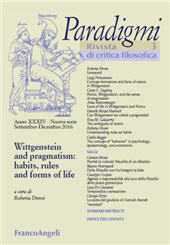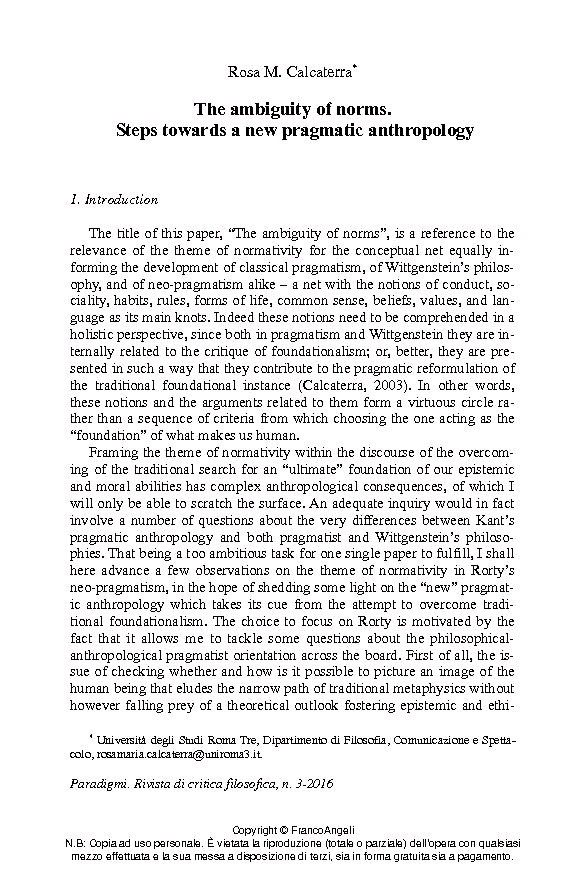The ambiguity of norms : steps towards a new pragmatic anthropology
87-102 p.
L'articolo intende mostrare la rilevanza della questione della normatività rispetto alla costruzione di una "nuova" antropologia pragmatica che possa attingere ad elementi condivisi dal pragmatismo classico, dalla filosofia di Wittgenstein e dal neo-pragmatismo. In particolare, si discute la possibilità e le eventuali modalità in cui il loro comune progetto di accantonare il fondazionalismo moderno consenta di delineare un'immagine dell'essere umano che eviti le strettoie della metafisica tradizionale senza tuttavia cedere ad una visuale scettica delle norme epistemiche e valoriali. Pertanto verrà data specifica attenzione al "pragmatismo linguistico" di Rorty, proprio in quanto esso consente di affrontare alcune questioni cruciali per un'antropologia filosofica di orientamento pragmatista e wittgensteiniano [Testo dell'editore].
The paper aims at indicating the relevance of the issue of normativity for the construction of a "new" philosophical anthropology focused on the pragmatic criteria embedded with classical pragmatism, late Wittgenstein's philosophy, and neo-pragmatism alike. In particular, their common project of putting aside the traditional foundationalism will be considered in order to checking whether and how is it possible to picture an image of the human being that eludes the narrow path of traditional metaphysics without however falling prey of a theoretical outlook fostering epistemic and ethical skepticism.
Accordingly, the paper concentrates on R. Rorty's "linguistic pragmatism" since it allows to tackle some pivotal questions about the philosophical-anthropological pragmatist and Wittgenstein's orientation. In particular, the following two intertwined questions will be addressed: (1) what is the anthropologically relevant point in Rorty's attempt to shift the very focus of pragmatist philosophy from the concept of experience to that of language? (2) Which kind of anthropological contribution should we grant to his defense of contingentism as against transcendentalism/metaphysics, and specifically to the theme of the change in vocabularies? [Publisher's Text].
-
Articles from the same issue (available individually)
-
Information
ISSN: 2035-357X
KEYWORDS
- Normatività, Antropologia pragmatica, Rorty, Wittgenstein, Contingentismo
- Normativity, Pragmatic antropology, Rorty, Wittgenstein, Contingentism



